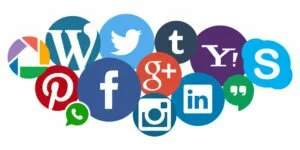We had a variety of reactions to our blog post earlier this month about BI and Data Visualization Trends, and one among the topics that appeared to catch people’s attention was the world of Social Media and Business Intelligence. So we decided to delve a touch deeper into the subject.
As we become more reliant on online social networking sites to attach with our friends, peers, and colleagues, we sometimes forget that we are generating an unprecedented amount of knowledge about ourselves, and in doing so we are essentially providing a wealth of demographics, opinions and behavioral information for third-parties. an outsized number of companies are now gathering real-time intelligence and using social media data to realize a competitive edge.
Organizations can analyze the info to raised understand customer feelings and satisfaction, market trends, and threats from competitors. From a cultural point of view, the info also can provide insight into the collective opinions of the general public on current issues, including political events, social crises (such because the BP oil spill), and even reality TV shows. However, social data is arguably the foremost challenging to integrate into a BI platform because it’s so fluid and unstructured.
BI pros are wont to working with financial and sales data, which features a more clear structure. But, as John Thompson, CEO of Kognitio’s U.S. operations says, “How does one take 140 characters of what Tim and Donna said, put it during a database and run a line on it?”.
Social media and business intelligence are hugely different; so different actually, that the strengths and weaknesses of every often complement one another. once you see something interesting during a chart or dashboard, your first instinct is some things like “I’ve needed to tell someone about this” or “I wonder if they realize this.” Intelligence always stimulates a Social impulse. Now turn it around the other way. once you are with colleagues discussing the way to affect a problem facing the team, what’s your reaction? Probably something like “let’s start with facts” or “what can we realize the situation?” Social collaboration always stimulates an Intelligence impulse.
3 samples of when social media isn’t perhaps not the proper choice:
1. Your product has but 5 customers –
When your customer base is so targeted, you would like to be direct with such a limited marketing budget. Regular face-to-face meetings, customer events, and other tactics would be a far better fit for this type of product.
2. you do not have an indoor advocate for social media –
A key advocate within the corporate is completely imperative. this could be a key administrator within the organization that will supply the needed resources and leadership to permit the organization to successfully leverage social media. Without one, the organization risks making the social networking effort too early and having it fail its objectives.
3. you would like to get a high volume of short-term sales –
Can social media drive sales? Yes. Can it drive targeted short-term high-volume sales? In most cases, it can’t. Creating transactional opportunities on the online takes trust, but trust takes time to determine.
As a result of our article, we generated some discussion about the role of social media and BI – we found there was a general consensus around social media not being a fad, which organizations are going to be ready to draw long-term value from social networking if they use it correctly. Similarly, it had been thought that if organizations don’t make their BI easy to use and recognize the impact that social media can have, they’re likely to fall behind their competitors. Social networking shouldn’t be underestimated as a business tool – the important thing is simply to understand the way to leverage business from it.



